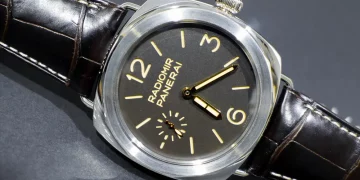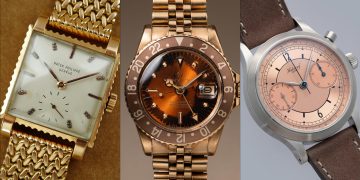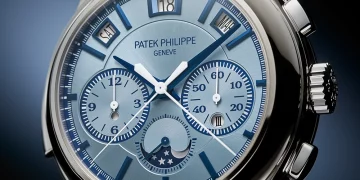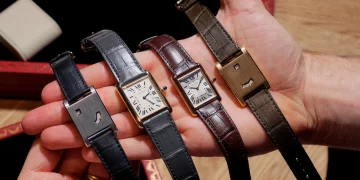Watches, while universally understood as tools for timekeeping, hold deep cultural significance in many societies. They transcend their functional purpose and often serve as symbols of status, identity, wealth, and even heritage. However, the meaning that a watch carries can vary widely depending on the cultural context in which it is worn. In this article, we explore the multifaceted symbolic meanings of watches in different cultural settings, shedding light on how these timepieces reflect a wide range of values, beliefs, and traditions.
1. Watches as Symbols of Status and Wealth
In many cultures, a luxury watch is far more than a mere instrument for tracking time. It is often seen as a status symbol, a marker of wealth, and a social indicator. From the grandeur of Swiss-made mechanical watches to the sleek appeal of high-tech smartwatches, a watch can reveal much about the wearer’s social position, taste, and lifestyle.
a. Western Cultures: Prestige and Individuality
In Western cultures, particularly in countries like the United States and Europe, luxury watches are often associated with prestige, success, and individuality. Brands like Rolex, Patek Philippe, and Audemars Piguet have cultivated a powerful identity as the ultimate symbols of luxury. The watch often represents accomplishment, signaling that the wearer has reached a certain level of financial success or has earned their position in a competitive world.
For example, the act of gifting a Rolex or a Patek Philippe watch can signify a significant life milestone, such as a career achievement, a graduation, or even a retirement. A high-end watch in the West is often equated with the idea of self-made success and social mobility. It is not just a timepiece; it’s a statement about the wearer’s journey and aspirations.
b. Eastern Cultures: Respect and Tradition
In Eastern cultures, particularly in China, Japan, and India, watches also hold significant symbolic value but often with a focus on respect and family tradition. In China, for instance, giving a watch as a gift is considered auspicious, as it symbolizes the desire to “spend time wisely” and honors the recipient’s future success. The idea of time in Chinese culture is deeply linked to prosperity, and watches are often seen as instruments that not only track time but also shape the future.
In Japan, watches are often viewed as a reflection of attention to detail and precision—values that align with the culture’s respect for craftsmanship and discipline. A Japanese-made watch, particularly from brands like Seiko or Grand Seiko, embodies the nation’s long-standing commitment to quality and reliability, and the watch becomes a symbol of personal integrity.
c. Middle Eastern Cultures: Generational Legacy and Luxury
In the Middle East, luxury watches are deeply intertwined with family legacies and social stature. High-end watches, particularly Swiss watches, are often passed down through generations, serving as symbols of heritage and family wealth. The Omani and Saudi elite, for example, are known for their affinity for luxury watches, and owning a Rolex or Richard Mille may symbolize not only affluence but also a connection to family legacy and tradition.
2. The Role of Watches in Cultural Identity
Beyond symbols of wealth and status, watches also play an important role in expressing cultural identity. From the design elements to the materials used, watches can reflect a range of cultural values, aesthetics, and philosophies.
a. Swiss Watchmaking: Precision and Heritage
Switzerland’s historical dominance in the watchmaking industry is linked to a deep sense of national pride and craftsmanship. Swiss-made watches, such as those from Rolex, Omega, and Patek Philippe, are often viewed as the epitome of quality, and owning one signifies affiliation with a culture that values precision, heritage, and innovation.
For the Swiss, a watch is not just a piece of jewelry—it represents centuries of horological excellence, a commitment to craftsmanship, and an intrinsic connection to the nation’s history. The symbolic meaning of a Swiss watch is therefore tied to the nation’s reputation for producing the best watches in the world, showcasing their dedication to precision and luxury.
b. Smartwatches: A New Cultural Paradigm
The rise of smartwatches has introduced a new era in watch symbolism, particularly among younger generations globally. Unlike traditional watches, which have been tied to ideas of luxury and status, smartwatches are often viewed as symbols of modernity, technology, and efficiency.
In Western cultures, smartwatches like the Apple Watch or Samsung Galaxy Watch have become symbols of a connected lifestyle, emphasizing functionality over luxury. These watches are tools for tracking health, receiving notifications, and maintaining a digital presence. In contrast to traditional watches, smartwatches are seen as indicative of forward-thinking and a desire to stay ahead of technological trends.
In other parts of the world, smartwatches may also represent the growing influence of technology in everyday life and the increasing importance of personal health. For example, in countries like India and Brazil, where fitness culture is on the rise, a smartwatch may symbolize a commitment to wellness and self-improvement, reflecting the user’s modern approach to life.
3. Watches as Symbols of Ritual and Personal Significance
In certain cultures, watches go beyond their role as fashion accessories or status symbols and carry personal significance that reflects deeper cultural and emotional meanings.
a. Watches as Gifts in Weddings and Milestones
In cultures worldwide, watches are commonly given as gifts during important life events such as weddings, graduations, or anniversaries. For example, in India, gifting a watch during a wedding is seen as a way to mark the beginning of a couple’s shared future, symbolizing timelessness and commitment.
Similarly, in Eastern European countries and parts of Africa, gifting a watch represents respect and a wish for long life and success. The watch is often regarded as a legacy gift, handed down to children or grandchildren to continue a family tradition.
b. The Watch as a Personal Ritual
In some cultures, the act of wearing a watch itself becomes a ritualistic expression of time, significance, and memory. For example, in Japan, the meticulous care with which an individual selects and wears a watch often reflects their approach to life. A Japanese watch is not simply worn as a tool; it embodies an aesthetic value, representing both individuality and respect for precision. The same can be said in cultures that value personal ritual, where the act of putting on a watch is a significant moment in the day, grounding the wearer in their sense of self and purpose.

4. Watches as Symbols of Movement and Change
As a tool for measuring time, a watch in every culture is also intrinsically linked to the concept of movement and change. Time, in many cultures, is not just a linear progression but a reflection of how individuals and societies grow, evolve, and respond to the passage of life.
a. The Symbolism of Time in African Cultures
In many African cultures, watches are symbolic of life’s transitions—they represent the individual’s journey and connection to the world. The symbolic importance of time in many African societies is not necessarily tied to measured hours, but to the life events that unfold within these periods. A watch may symbolize wisdom, spirituality, and the interconnectedness of all things, emphasizing the present moment rather than merely the future.
b. Watches as a Link to the Future in Latin America
In Latin American cultures, timepieces, particularly luxury watches, often symbolize future aspirations. Many people in countries such as Mexico, Argentina, and Brazil view owning a luxury watch as a step towards achieving dreams. The watch is seen as a symbol of hard work, determination, and the anticipation of future success. It carries the belief that by owning something as precious as a luxury watch, the individual has already taken a step towards realizing their aspirations.
5. Conclusion: A Universal Yet Diverse Symbol
While watches are universally recognized as tools for measuring time, their symbolic meaning is far from uniform. Across different cultural contexts, watches can represent status, heritage, identity, ritual, and aspiration. They serve as reflections of how individuals and societies understand time, success, tradition, and personal growth.
As global cultures continue to intersect and influence one another, the symbolic meanings of watches will undoubtedly evolve, but the watch will always remain a powerful symbol—a timeless reflection of human history, aspiration, and identity across cultures.





































